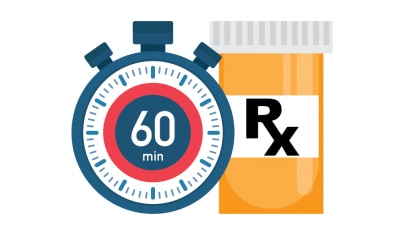At a glance
Learn about the Illinois Perinatal Quality Collaborative (ILPQC)'s efforts to improve maternal care. The ILPQC worked to better outcomes related to high blood pressure conditions around the time of pregnancy.
The problem: rising pregnancy complications
Each year, too many US women are affected by severe pregnancy complications. Rates of severe pregnancy complications associated with preeclampsia were rising in Illinois. Preeclampsia is a condition marked by high blood pressure, also called hypertension, and other signs that organs are not working normally.

In response, the Illinois Perinatal Quality Collaborative (ILPQC) started the Severe Maternal Hypertension Initiative. This project aimed to work with clinicians, public health, and patient advisors—to improve maternal care for health conditions, such as:
- Severe preeclampsia.
- Eclampsia, a complication of preeclampsia resulting in seizures.
- Hypertension before pregnancy, and development of preeclampsia.
Plan: develop a strategy for success
The ILPQC set a goal to help reduce pregnancy complications caused by high blood pressure. ILPQC put into place quality improvement (QI) science and evidence-based practice guidelines in hospitals. As part of the project, ILPQC provided participating hospitals opportunities to learn together, use rapid response data, and receive QI support. ILPQC worked with public health professionals to develop key driver diagrams, measures, data forms and reports, and an implementation strategy. A total of 108 hospital teams joined the effort.
ILPQC worked to improve care for women with severe high blood pressure in the following ways:
- Reduce time to treatment of severe hypertension to 60 minutes or less.
- Provide education to patients at delivery discharge.
- Schedule a postpartum follow-up appointment within 7 to 10 days.
- Conduct clinician debriefings on severe hypertension treatment.
Action: steps for effective implementation
During the initiative, ILPQC took the following actions to address the problem:
- Held face-to-face meetings and 1-hour collaborative learning webinars.
- Collected, reported, and monitored data via ILPQC web system.
- Applied QI strategies to improve severe hypertension care.
- Initiated QI calls with hospitals that needed additional support.
- Developed a toolkit and a webinar series on the ILPQC website.
Result: improvements in maternal care

As a result of these efforts, care for pregnant and postpartum women with severe hypertension improved significantly within 2 years.
The percentage of women with sustained new-onset severe hypertension receiving timely treatment rose from 41% to 87%.
The number of women who received preeclampsia delivery discharge education materials increased from 41% to 89%.
The number of women with severe hypertension who had a postpartum follow-up appointment scheduled increased from 68% to 83%.
The number of debriefings between nurses and other health care providers increased from 17% to 59%.
After carrying out the initiative, the ILPQC continued to provide support. This included hospital sustainability planning, monthly review and reporting of data, and quarterly webinars. Time to treatment rates continued to improve.
Lessons learned: engagement is key
The ILPQC identified these essential elements for success:
- Work with partners to communicate hospital needs and share resources.
- Engage health care providers as leaders to generate buy-in.
- Share data reports with health care providers to guide improvement.
- Make sustainability plans and monitor compliance with providers.
This success story reflects information as reported by ILPQC.
